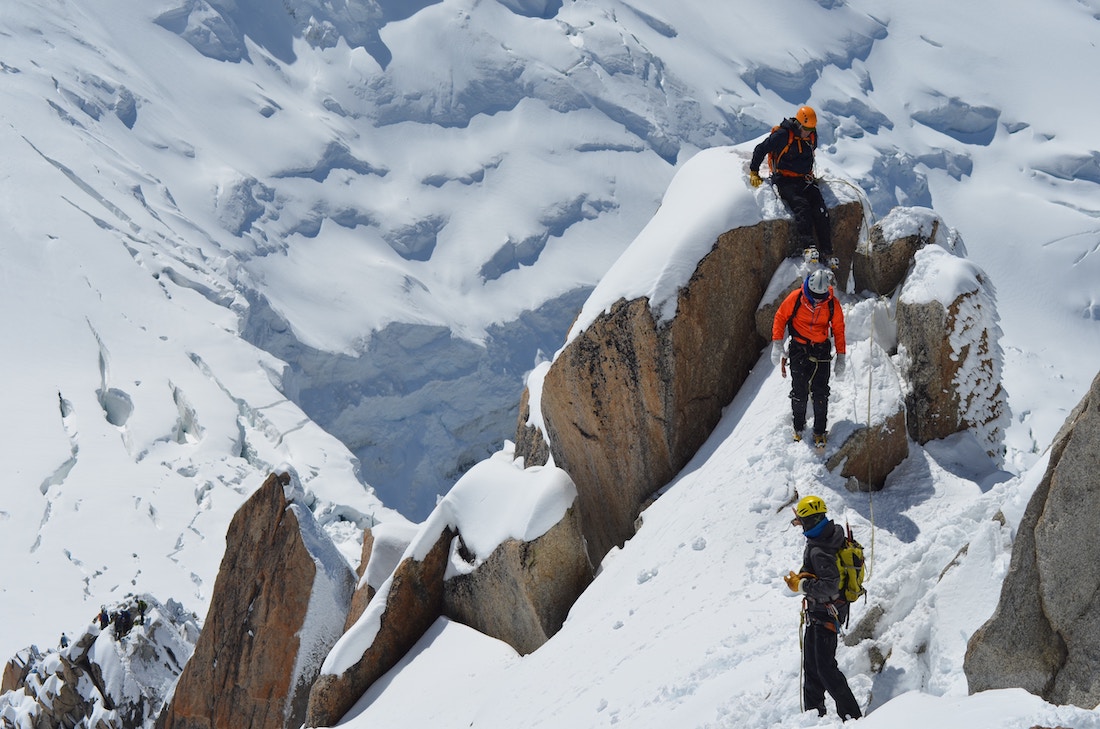We’re out acquiring our individual wintry adventures this 7 days. We most likely will not have to confront mortality whilst executing so, contrary to in lots of of Alastair’s grand quests. This is a pretty rumination about when to say when. —Ed.
I not too long ago climbed the 3 Peaks (the best peaks of England, Wales, and Scotland) with Phil Packer and Kate Silverton. The event proved far much more hard than we had anticipated and at just one time we had to go over no matter whether to give up or proceed. It was a interesting discussion and one particular relevant to several men and women who have taken on complicated expeditions. Just before I take a look at the good line between foolishness and bravery I will recap the a few selections that we were being talking about.
This attitude of gung-ho recklessness is all extremely nicely except if you die.
• Phil had reached a hell of a lot previously. There was no will need to do much more to demonstrate something. We need to just go for a enjoyable wander and enjoy it.
• We should really try to climb the peak but with a prearranged turnaround time. It was foolhardy to do an additional night-time descent. As it would not be doable for Phil to achieve the major before the turnaround time this method was dependent on the perception that acquiring a go was the critical element, not achieving the summit.
• Climb the mountain and not come back down right until we knocked the bastard off. To hell with every little thing else. We had arrive to climb the mountain, and that intended the summit.

Photo: Asoggetti
Apsley Cherry-Garrard thought of that “on the total it is better to be a very little above-daring than about-cautious.” Mark Twain felt that it would be “better to search back on his existence and regret the factors he experienced done relatively than people he had not done.” Many great expeditions and accomplishments have succeeded mainly because of a refusal to give in or compromise. How quite a few of us who make our dwelling from talking about adventures refer with a chuckle to nail-biting predicaments that narrowly avoided disaster. A wing, a prayer, and what Basic Sir Anthony Cecil Hogmanay Melchett named “a pigheaded refusal to seem points in the face” are standard occurrences in quite a few of the narratives of good adventurous accomplishments.
This frame of mind of gung-ho recklessness is all incredibly effectively unless you die. Ernest Shackleton was no coward. He turned all-around just 97 miles from the South Pole reckoning that his wife would like a “live donkey to a dead lion.” I envision that Kathleen Scott would have preferred the identical. Goran Kropp cycled all the way from his household in Sweden to Mount Everest then commenced climbing the peak. Tantalizingly close to the summit he created the choice to turn back and descend. That was an terribly courageous decision from a gentleman of bravery.
My conclusion, I suppose, is that there is no conclusion. All those of us who adore this everyday living will continue to want to pit our abilities, our nerve, and our mental and physical endurance towards severe environments. We do so even with – simply because – of the implacable, unbeatable power of the organic entire world. A storm on a substantial mountain can be a match for even the toughest guy a cliff or a crevasse or an expanse of ocean is unquestionably a a lot less than 100 percent harmless area to be. But an even increased danger than these is to not choose them at all, to permit lifestyle to pass us by in protected, forgettable shades of gray.
Finally there is a high-quality line in between recklessness and bravery. Wherever exactly that line lies is tough to say and does not seriously make any difference. We know that there is a line. The problem is to dance as near to it as you can, but with out overstepping it 1 time far too normally.
This post at first appeared on Alastair Humphreys’ internet site, Living Adventurously.
